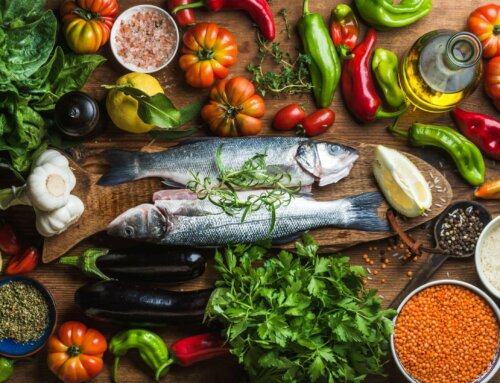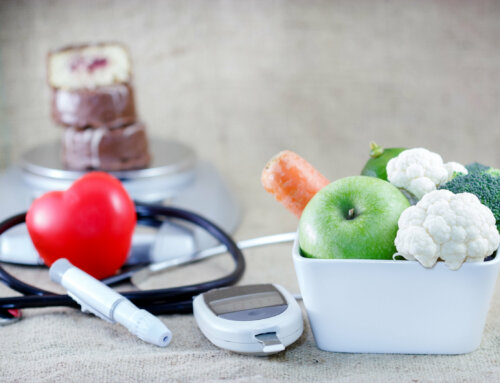I often get requests from on line customers as well as my office patients to suggest the very best food choices to eat when you have diabetes. Obviously there are some foods that are better than others but the boring truth is most fruits, vegetables, whole grains and lean proteins are always your best food selections.
Add in routine meal timing – eating on a schedule, portion control with a daily dose of exercise, proper medications with their timing and you have the perfect diabetes maintenance plan! I did dig a bit deeper on super foods so that you would not be disappointed. This list is by no means exhaustive but it does give you a reference point to make more positive choices. There are no foods that directly impact the specific condition of diabetes but there are some foods that are preferred for improved general health.
What is a super food? It has been described “as a high nutrient food that offers health benefits with few negative properties. Lack of negative properties includes a little or no saturated fats, trans fats, artificial ingredients or food additives.” Science concludes that there really is no such thing as “super foods” and that it is a marketing tool to get increased product attention. All I can say is you will never see a bagged, boxed or processed food on those super food lists! In my opinion that actually makes them more super! You be the one to decide because these choices certainly can’t hurt you and always remember portion control.
- Eggs – “No longer the bad guy” according to David Katz, MD, director of Yale Prevention Research Center. According to Dr. Katz cholesterol in food makes a “negligible contribution to blood cholesterol levels. Only 30% of people respond to food cholesterol (that does not allow you to start eating fried and fatty foods!). There was no association between eggs and an increase of cardiovascular disease. With that said, a reasonable amount of whole eggs would be 3-4 a week. You can indulge in egg whites or egg beaters on a daily basis with no problem. The yolk, which does contain the cholesterol, also contains the fat and calories. Nutrition from an egg is almost perfect. It contains Vitamin D – the new buzz vitamin – that reduces heart disease, cancer, diabetes and Alzheimer’s disease, choline for brain and nervous system function, multiple B vitamins and 6 grams of protein and 60 calories. Try to find the ones that contain Omega 3s for an even more perfect food. Combine with whole grain bread and a bowl of berries for a simple and nutrient dense breakfast! Alternative foods with similar nutrition are sardines.
- Plain Greek yogurt – We keep hearing mixed reviews on dairy. Some of the studies say low fat dairy helps in controlling weight – especially belly fat – which is a common problem for those with diabetes; some say it is the enemy due to so many people being lactose intolerant. If you can eat dairy, go for it and think plain Greek yogurt. It is more tangy and thicker than regular yogurt, contains more protein, calcium and is full of friendly bacteria to help your gut stay healthy. Some hate the taste at first but then get used to it. Add a handful of nuts, cinnamon, wheat germ and some berries and you’ve got another great breakfast! A 6 ounce serving has 12 carbohydrates and is a perfect snack as well. Great source of Vitamin B 12.
- Walnuts, salmon (the cold water wild kind – not farm raised), sardines, wheat germ, flax seeds – All are great sources of Omega 3s which help with digestion, arthritis, reducing blood clotting (watch in conjunction with blood thinners) and heart health. It can decrease your triglycerides, decrease inflammation, help move calcium in and out of the cell, better your mood and memory as well as make your body respond to insulin more effectively. You can include other fish like sardines, anchovies or mackerel which are cheap, plentiful and contain less mercury than larger fish but have lots of Omega 3s. Almonds, pistachios, pecans and even peanuts (which is really a legume) have wonderful nutritional benefits as well as long as you keep it to 1½ ounces a day. Wheat germ can be used if you are allergic or do not tolerate fish or nuts. Add small amounts of wheat germ to salads, cereal, soups, and coatings on chicken, fillers in meat loaf or hamburgers and even sprinkle on popcorn!
- Grapefruit – a tasty treat which is low in calories, reasonably priced and loaded with antioxidants. A study in the Journal of Agricultural and Food Chemistry states “it lowers the LDL by 15%, the triglycerides by 27% and it is loaded with Vitamin C which is the immune system booster.” The deep red variety has the most nutrients. It helps in fat burning, stabilizes blood sugar and insulin levels as found by Scripps Clinic in California. It even promotes collagen formation a protein that plumps up skin. Remember if you are on certain medications – including statins – you should skip grapefruit which can intensify the action. Always check with your physician.
There are so many more foods I would like to keep you updated on so I will plan on another installment. In the meantime enjoy these terrific choices and take control of your diabetes!
NOTE: Consult your Doctor first to make sure my recommendations fit your special health needs.






Leave A Comment